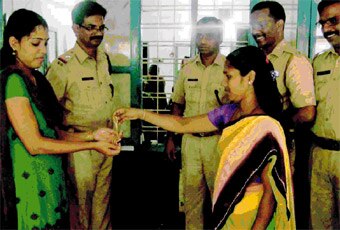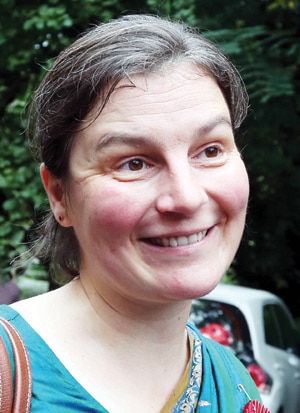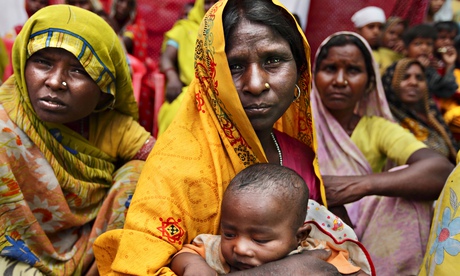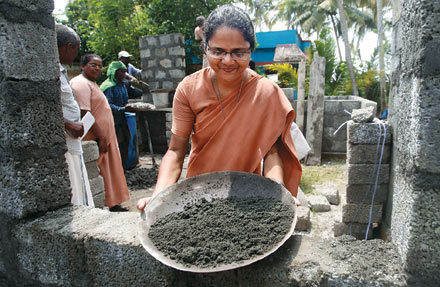By
MR.DAVID JAYKAR DANIEL (Brampton,Ontario).
Dr. Victor G.M. Pavamani(George Martin) was one of the illustrious sons of the Basel Mission Community of Malabar,Kerala,India.He was born in a family steeped in the Christian traditions of that community.His father, The Rev.Isaac Pavamani was a Presbyter in the Basel Mission Church and served congregations at Puthiyara,Codakkal& Chombala in Malabar. His mother,Rebecca Pavamani was a dedicated Christian and supported her husband's work through her involvement in Women's Prayer Groups and Visiting Sick&Elderly in the Church& beyond.Rev.Isaac Pavamani's younger brothers,Advocate Pavamani of Puthiyara(Freedom Fighter), Mr. John Pavamani(Head Master,B.E.M. High School, Palghat) and Rev. Moses Pavamani were all well known in the Basel Mission Community of Malabar& in the community at large for their leadership & their dedication .
Born in Parapperi near Codakkal, Malabar Dr. Pavamani had his university education in Malabar Christian college and in Tambaram Madras Christian College.He earned B.A.(Hons.) and L.T.(teaching degree)from Madras University and the taught at M.C.College High School, Calicut where he endeared himself to his colleagues and his students.He was well known for his involvement in the extra curricular activities of the School& also of the M.C. College with Production of Dramas& organizing exhibitions.
In 1948, he left for USA to persue graduate studies(Ph.d.).If my memory serves me well a large group of his well wishers(MY father& myself included) gathered at the Calicut beach to bid him Bon Voyage where "Vittoo" or Pavamani Master as he was affectionately referred to got into a small boat and went towards an ocean liner waiting a couple of miles away at sea to sail for USA.
By that time he had a family. He married Jane Clements(daughter of Mr.Thomas&Mrs.Lydis Clements).She and their two young boys, Dado(Dr.Victor Pavamani,now in Atlanta,USA) and Ivor(Mr. Ivor Pavamani, now in Markam,Toronto,Canada) continued to be in Calicut with Mr&Mrs. Clements,near Calicut Veterinary Hospital.
In 1953,Dr. Pavamani returned to Calicut with a PhD. degree from University of Washington,USA to the immense joy of his family& indeed of the community.
Soon afterwards,he was appointed Principal of Malabar Christian college(succeeding Mr. J.F.Thaddaeus under whom college remained a second grade college).He immediately went into the task of upgrading the college. Thanks to his yeomen service and tireless effort and the the high regard they had for him the Syndicate of the Madras university granted permission for MCC,Calicut to upgrade & offer degree programs in 1956-57.Thus a long held dream of the Basel mission Community of Malabar to have their own First Grade college was realized and MCC, Calicut became the first such college in Calicut City proper.Generations of the Community that came after that owes a great debt of gratitude to Dr.Victor G.M. Pavamani for this singular achievement. In that period before Kerala State was formed getting permission from the Government of Madras and affiliation from Madras university were not easy tasks.
Because of Dr. Pavamani's efforts& the financial help from "Friends of Malabar Chistian College in USA" College was able to construct new building necessary for the new Programs at a time financial aid from Governments was hard to come by.
Dr. Pavamani went to USA for a year or two in 1958-59 and returned to develop the college even further. He was involved in the CSI Diocesan&General Synod Committees and was the Manager of the Church Schools in the erstwhile Malabar district.. He was THE prominent member of the Malabar& South Canara Educational Society of the Basel Mission in India, the legal Governing Body of all our Church Schools&the College.His affiliation with the Rotary Club& the YMCA is well known.Malabar community embraced him as a leader with great vision, dynamism& Charisma.His association with leaders like Mr. K.P. Kesava Menon, Mr. P.P. Hassan Koya and Mr. K.P. Ramunni Menon all added colour& vitality to his carrer and also enhanced the standing Basel Mission had among the larger Community.He was also a well respected member of the Kerala university Synod& Syndicate.
In 1965,he, Mrs. Pavamani& son Ivor went to USA when he accepted a Post Doctoral Fellowship there. After a couple of years he decided not to return to Calicut and accepted a professorship in Vancouver,Canada.
On February 20, 1978 while exercising at home Dr. Pavamani had a Cardiac arrest and Passed away. He was cremated at cemetery of St. Mark's Cathedral,Seattle,USA.
It is a previlege for me and Jamuna to be able to visit Mrs.Jane Pavamani occassionaly; she makes her home in Toronto not very far from her son Mr. Ivor Pavamani.
Dr.Victor G.M. Pavamani was a mentor to me.While in Alwaye I was able to meet up with him often on his way to University meetings and share our dreams and our objectives.
For many of my generation and for many who came later Dr. Pavamani was a shinning Star.The Community is hugely indebted to him.
In 1948, he left for USA to persue graduate studies(Ph.d.).If my memory serves me well a large group of his well wishers(MY father& myself included) gathered at the Calicut beach to bid him Bon Voyage where "Vittoo" or Pavamani Master as he was affectionately referred to got into a small boat and went towards an ocean liner waiting a couple of miles away at sea to sail for USA.
By that time he had a family. He married Jane Clements(daughter of Mr.Thomas&Mrs.Lydis Clements).She and their two young boys, Dado(Dr.Victor Pavamani,now in Atlanta,USA) and Ivor(Mr. Ivor Pavamani, now in Markam,Toronto,Canada) continued to be in Calicut with Mr&Mrs. Clements,near Calicut Veterinary Hospital.
In 1953,Dr. Pavamani returned to Calicut with a PhD. degree from University of Washington,USA to the immense joy of his family& indeed of the community.
Soon afterwards,he was appointed Principal of Malabar Christian college(succeeding Mr. J.F.Thaddaeus under whom college remained a second grade college).He immediately went into the task of upgrading the college. Thanks to his yeomen service and tireless effort and the the high regard they had for him the Syndicate of the Madras university granted permission for MCC,Calicut to upgrade & offer degree programs in 1956-57.Thus a long held dream of the Basel mission Community of Malabar to have their own First Grade college was realized and MCC, Calicut became the first such college in Calicut City proper.Generations of the Community that came after that owes a great debt of gratitude to Dr.Victor G.M. Pavamani for this singular achievement. In that period before Kerala State was formed getting permission from the Government of Madras and affiliation from Madras university were not easy tasks.
Because of Dr. Pavamani's efforts& the financial help from "Friends of Malabar Chistian College in USA" College was able to construct new building necessary for the new Programs at a time financial aid from Governments was hard to come by.
Dr. Pavamani went to USA for a year or two in 1958-59 and returned to develop the college even further. He was involved in the CSI Diocesan&General Synod Committees and was the Manager of the Church Schools in the erstwhile Malabar district.. He was THE prominent member of the Malabar& South Canara Educational Society of the Basel Mission in India, the legal Governing Body of all our Church Schools&the College.His affiliation with the Rotary Club& the YMCA is well known.Malabar community embraced him as a leader with great vision, dynamism& Charisma.His association with leaders like Mr. K.P. Kesava Menon, Mr. P.P. Hassan Koya and Mr. K.P. Ramunni Menon all added colour& vitality to his carrer and also enhanced the standing Basel Mission had among the larger Community.He was also a well respected member of the Kerala university Synod& Syndicate.
In 1965,he, Mrs. Pavamani& son Ivor went to USA when he accepted a Post Doctoral Fellowship there. After a couple of years he decided not to return to Calicut and accepted a professorship in Vancouver,Canada.
On February 20, 1978 while exercising at home Dr. Pavamani had a Cardiac arrest and Passed away. He was cremated at cemetery of St. Mark's Cathedral,Seattle,USA.
It is a previlege for me and Jamuna to be able to visit Mrs.Jane Pavamani occassionaly; she makes her home in Toronto not very far from her son Mr. Ivor Pavamani.
Dr.Victor G.M. Pavamani was a mentor to me.While in Alwaye I was able to meet up with him often on his way to University meetings and share our dreams and our objectives.
For many of my generation and for many who came later Dr. Pavamani was a shinning Star.The Community is hugely indebted to him.






























